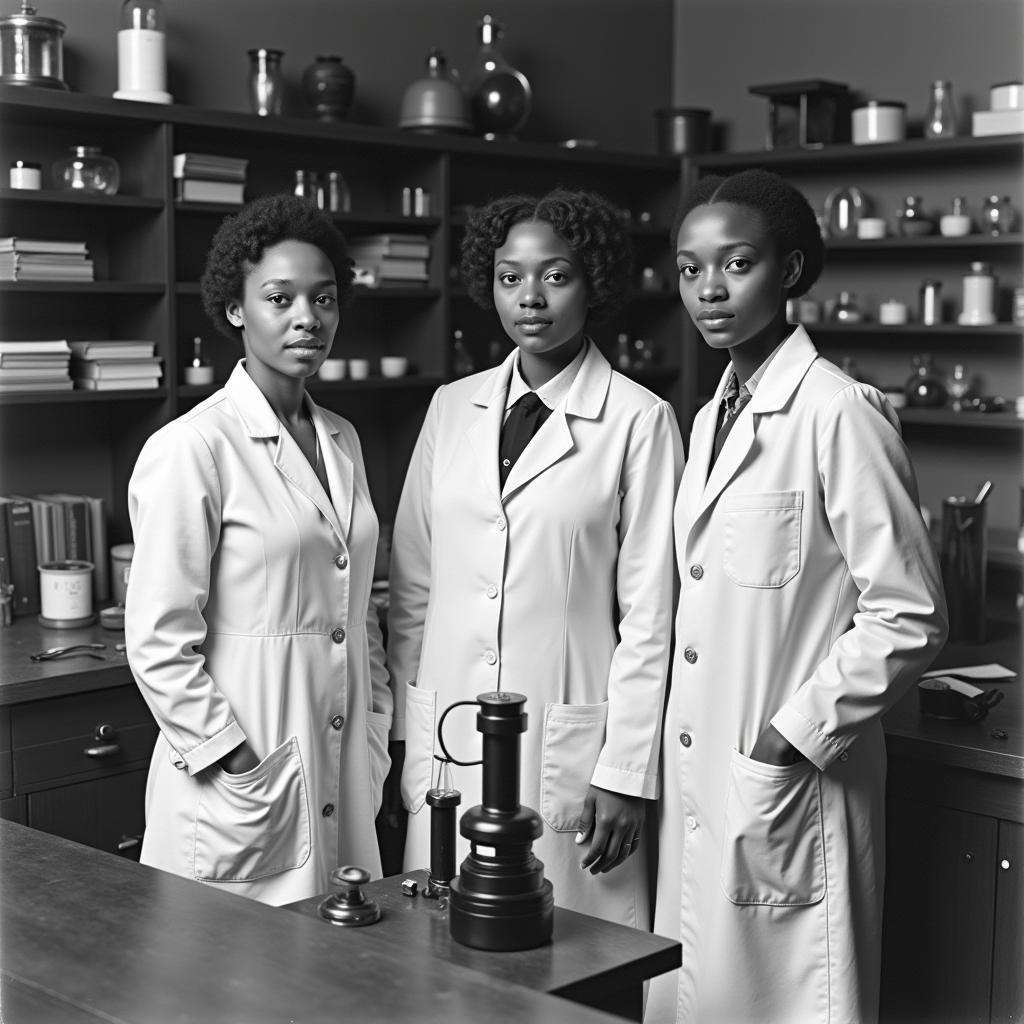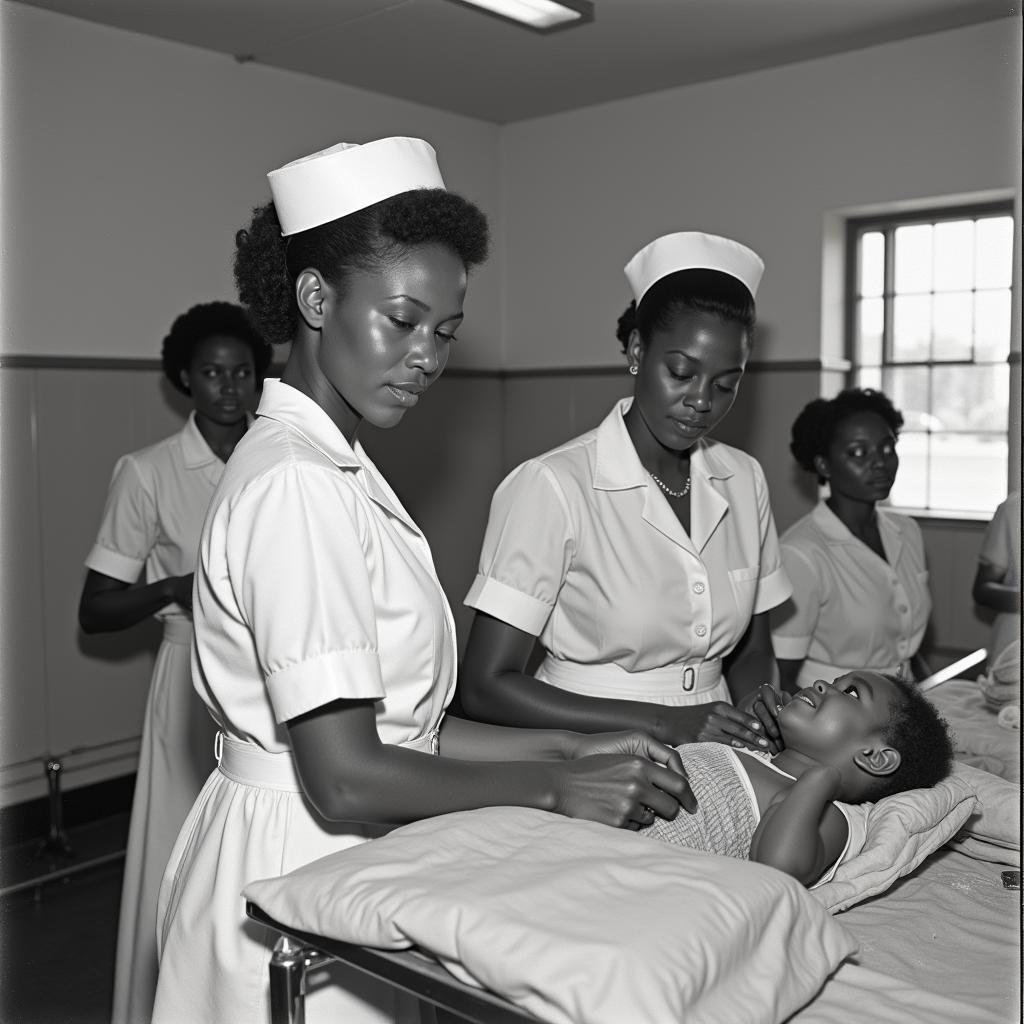Celebrating African American Female Doctors: Trailblazers in Medicine
African American Female Doctors have overcome significant obstacles and made invaluable contributions to medicine throughout history. Despite facing racism, sexism, and limited educational opportunities, these remarkable women have persevered and paved the way for future generations of medical professionals. This article highlights their inspiring journeys, achievements, and lasting impact on healthcare.
Early Pioneers: Breaking Down Barriers
 Early African American Female Doctors in Medical School
Early African American Female Doctors in Medical School
The late 19th and early 20th centuries saw the emergence of some of the earliest African American female doctors. Rebecca Lee Crumpler, born in 1831, became the first African American woman to earn a medical degree in the United States in 1864. She practiced medicine in Boston, primarily serving impoverished women and children.
Following closely behind, Dr. Susan McKinney Steward became the third African American woman to earn a medical degree in the US. She co-founded the Brooklyn Women’s Homeopathic Hospital and Dispensary, providing crucial healthcare to underserved communities. These pioneers challenged the status quo and opened doors for other women of color to pursue careers in medicine.
Overcoming Adversity: The Fight for Equality
 African American Female Doctors Treating Patients in a Hospital
African American Female Doctors Treating Patients in a Hospital
Despite their accomplishments, African American female doctors continued to face significant discrimination in the medical field. They were often denied admission to medical schools and residency programs, relegated to segregated hospitals, and excluded from professional organizations.
However, these determined women refused to be silenced. Dr. Elizabeth Blackwell actively fought against racial segregation in healthcare, advocating for equal opportunities for both medical professionals and patients. Her efforts helped to dismantle discriminatory practices and improve healthcare access for African Americans.
Shaping Modern Medicine: Specialization and Innovation
The latter half of the 20th century witnessed a rise in African American women specializing in various medical fields. Dr. Jane C. Wright, a renowned oncologist, made groundbreaking discoveries in chemotherapy, revolutionizing cancer treatment. Dr. Marilyn Hughes Gaston, a pediatrician and researcher, conducted vital research on sickle cell disease, leading to newborn screenings and improved treatment options.
These trailblazers and countless others have made significant contributions to their respective fields, demonstrating that African American women are essential to the advancement of medical knowledge and patient care.
A Legacy of Mentorship and Advocacy
African American female doctors have consistently recognized the importance of mentorship and advocacy. They have established organizations, such as the Association of Black Women Physicians and the National Medical Association, to support aspiring medical professionals, promote diversity in medicine, and advocate for health equity.
These organizations provide mentorship programs, scholarships, and networking opportunities, ensuring that future generations of African American female doctors have the resources and support they need to succeed.
Conclusion
The journey of African American female doctors is one of resilience, determination, and unwavering commitment to improving healthcare for all. From breaking down barriers to leading medical breakthroughs, these remarkable women have left an indelible mark on medicine. As we celebrate their achievements, we must also acknowledge the ongoing need to address health disparities and create a more equitable and inclusive healthcare system. Their stories serve as an inspiration to aspiring medical professionals and a reminder that representation and diversity are essential for a healthier future.
